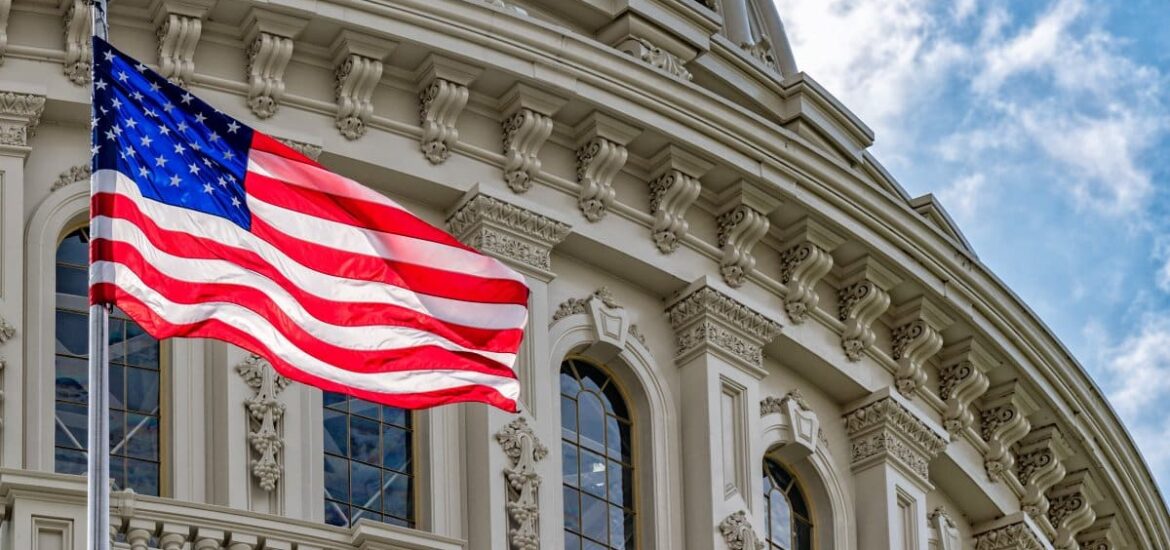US Congress leaders have negotiated a deal on the federal budget to prevent a potential government shutdown. This agreement, crucial in the current political landscape, outlines a spending plan for the remainder of 2024.
Impending Deadline
Congress faces a pressing deadline to finalize this $1.6 trillion budget. The deal aims to avert a partial government shutdown, with less than two weeks left to solidify funding plans and maintain federal services.
The proposed budget includes a substantial $886 billion for defense. Meanwhile, non-defense spending is earmarked at over $704 billion. For this deal to take effect, both the House of Representatives and the Senate must approve it.
Republicans have been advocating for freezing overall government spending. Their approach includes cutting certain budgets, reflecting their fiscal conservatism. While Democrats have successfully pushed for protections against cuts to benefits and health. This safeguard is a key aspect of their agenda, emphasizing their commitment to social welfare.
The House Freedom Caucus, a conservative Republican group, has criticized the deal as a “total failure.” While President Biden has shown support for the deal, considering it a step towards preventing a government shutdown and upholding national priorities.
Impact of a Government Shutdown
A government shutdown has far-reaching implications for Americans, disrupting essential services and impacting federal employees. In the past, shutdowns have led to furloughs and delayed paychecks for thousands of government workers. This not only creates financial strain for these individuals and their families but also hampers the delivery of critical services upon which many Americans depend.
During a government shutdown, many federal services come to a halt. This can include delays in processing various benefits, tax refunds, and other essential government functions. It significantly affects day-to-day operations and the lives of citizens relying on these services.
Beyond the immediate effects on federal operations, a shutdown can ripple through the economy. Businesses that rely on government contracts or services may face disruptions, potentially leading to broader economic impacts.
Public Health and Safety Concerns
Essential health and safety services may experience understaffing or resource limitations during a shutdown. This can compromise response capabilities in areas like food safety inspections and disease control.
Tourism and local economies suffer when national parks, monuments, and museums close. These attractions draw visitors nationwide, contributing significantly to local businesses.
Government-funded research projects may face delays or suspensions, affecting scientific progress and innovation. This can have long-term implications for technological and medical advancements.
Disruption in Education Funding
Federal funding for education, including grants and aid programs, could be delayed, impacting schools, teachers, and students, especially those relying on federal assistance.
While essential military operations continue, a shutdown can affect support staff and civilian employees within the Department of Defense and Homeland Security, potentially impacting national security readiness.
US diplomatic missions abroad might face limitations, affecting international relations and aid programs. This can hinder America’s global standing and humanitarian efforts.
Transportation and Infrastructure
Shutdowns can delay infrastructure projects and disrupt transportation services, affecting commerce and daily commutes. The Federal Aviation Administration, for instance, might face staffing challenges.
Processing of immigration applications and border security operations could face delays, affecting individuals and businesses relying on timely immigration services.
Veterans might experience delays in accessing benefits and healthcare services, impacting a population that relies heavily on government support.
Programs like food stamps and housing assistance could face disruptions, affecting low-income families and individuals who depend on these services for their basic needs.
Long-term Economic Consequences
More broadly, repeated shutdowns or prolonged closures can erode public trust in government effectiveness and have lasting effects on the nation’s economic stability and growth.
The budget agreement in Congress is not just about numbers; it’s a critical measure to maintain the functioning of the government and to ensure the well-being of the American public. As lawmakers negotiate, the emphasis remains on finding a solution that avoids the detrimental impacts of a government shutdown.
The government narrowly avoided a shutdown previously with a short-term deal in October. This situation underscored the need for a more permanent solution. Now, Congress members must resume their negotiations soon, with a tight deadline approaching. These discussions are crucial for securing funding for various sectors, including transport, housing, and energy.
A Crucial Step
This budget deal represents a crucial step in managing the nation’s finances and averting a government shutdown. The agreement highlights the complexities of bipartisan negotiation in a divided Congress and sets the stage for future discussions on fiscal and foreign aid policies.
As the deadline approaches, all eyes are on Congress to finalize this essential funding plan.
More From Frugal to Free
24 High-End Beauty Products That Aren’t Worth Splurging On
24 Retro Kitchen Gadgets Surprisingly Worth Big Money
The post U.S. Budget Breakthrough: A Huge Step Forward Amidst Looming Shutdown Threat first appeared on From Frugal to Free.
Featured Image Credit: Shutterstock / Andrea Izzotti. The people shown in the images are for illustrative purposes only, not the actual people featured in the story.
